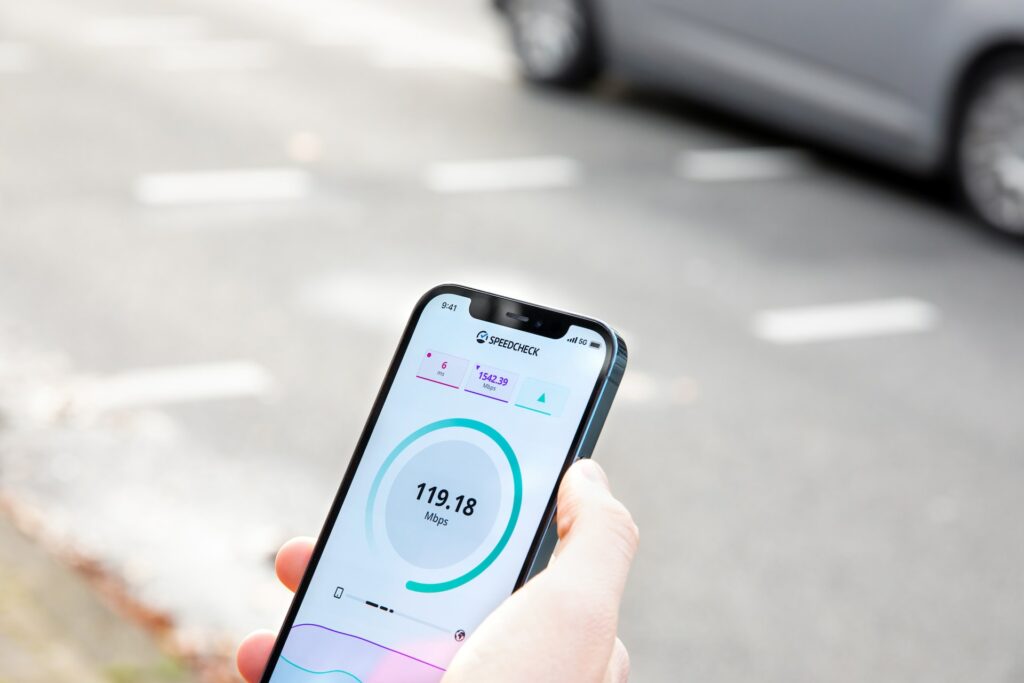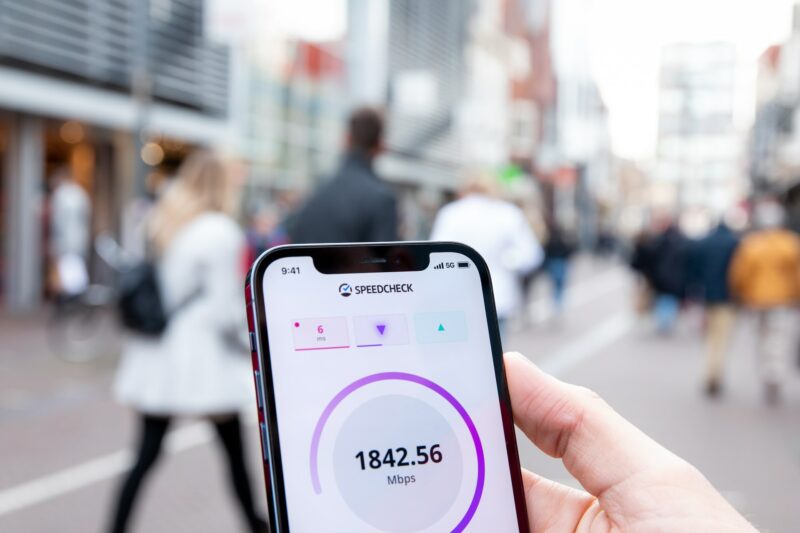
Have you ever wondered what a good internet speed is? Well, you’re not alone. In today’s digital age, we rely on our internet connection for just about everything – from work to entertainment and everything in between.
That’s why it’s important to make sure you have a good internet speed. But what exactly is a good internet speed? And how can you tell if your internet is up to snuff? Keep reading to find out.
What is a good internet speed
There isn’t really a definitive answer to this question since it can vary depending on what you’re using the internet for. In general, however, a good internet speed is one that is fast enough to allow you to do what you want to do without too much buffering or loading time.
For example, if you’re just browsing the web or checking email, a lower speed might suffice. However, if you’re planning on streaming video or gaming online, you’ll likely need a higher speed.
In terms of specific numbers, the Federal Communications Commission (FCC) defines broadband as an internet connection with download speeds of at least 25
Mbps and upload speeds of at least 3 Mbps. This is generally considered to be a good starting point for most households.
Of course, your actual needs may be different. For instance, if you live in a household with multiple people who are all trying to use the internet at the same time, you might want a speed that’s closer to 100 Mbps so everyone can do what they want without interruption.
To figure out what’s best for your situation, it’s a good idea to run an internet speed test (you can find many free options online) and see how fast your current connection is. From there, you can determine whether upgrading to a faster package is worth the cost.
How to check your internet speed
There are a few simple ways to check your internet speed. One is to use an internet speed test site such as Speedtest.net or Fast.com.
You can also use a tool like Windows Task Manager on a PC or the Activity Monitor on a Mac to check your internet speed.
To get the most accurate reading, it’s best to perform the test with no other devices connected to your home network.
Why is it important to have a good internet speed?
It is important to have a good internet speed because it allows you to do things such as stream videos, browse the internet, and download files quickly. A slow internet connection can be frustrating and can cause you to miss out on opportunities or wait longer for things to load.
What factors can affect your internet speed?
There are many factors that can affect your internet connection speed. Here are some of the most common:
-Your internet service provider (ISP)
-The type of internet connection you have
-The strength of your Wi-Fi signal
-The number of devices using your Wi-Fi connection
-The age and model of your computer or device
-What you’re using the internet for (browsing, streaming, gaming, etc.)
If you want to ensure that you’re getting the most out of your internet connection, it’s a good idea to test your speed regularly. There are a number of online tools you can use to do this, such as speedtest.net.
How to improve your internet speed
An insufficient internet connection can give you a lot of headaches. A slow or patchy internet connection can ruin your workday, your playtime, and your relaxation time. That’s why it’s important to have a good internet speed and to know how to improve your internet speed if necessary.
How can I improve my internet speed?
There are a few things you can do to try and improve your internet speed.
-Check your equipment: Make sure you have a modern router that supports 802.11ac (the latest wireless standard) and make sure it’s turned on and working properly. If you have an older router, you may want to upgrade to a newer one.
-Check your cords and cables: Make sure all the cords and cables connected to your modem and router are secure and not damaged in any way.
-Restart your modem and router: Sometimes all you need to do is restart your modem and router to improve your internet speed. To do this, unplug the power cord from the back of the modem or router, wait 30 seconds, then plug it back in again.
-Upgrade your plan: If you’re on a slow internet plan, upgrading to a faster one may help improve your speed. Contact your ISP to see what plans are available in your area.
-Get rid of interference: Various factors can interfere with your WiFi signal and slow down your internet connection, including walls, metal objects, microwaves, fish tanks, Cordless phones, baby monitors, Bluetooth devices, etc. Move these objects out of the way if possible or turn them off when you’re not using them
What are the consequences of having a bad internet speed?
A recent study has shown that even a one second delay in loading time can decrease customer satisfaction by 16%. (1)
If you site takes too long to load, visitors will leave before they even see what you have to offer. In fact, 47% of consumers expect a web page to load in 2 seconds or less. (2) speed is so important that search engines like Google now use it as a ranking factor when determining where your website should show up in the search results. (3) Having a slow website will not only frustrate your visitors, it will also cost you money in lost sales and decreased search engine visibility.
So how do you ensure that your site loads quickly? The best way is to test your speed and then make improvements accordingly.
How can you troubleshoot internet speed issues?
There are a number of things that can impact your internet speed:
-The type of internet connection you have (cable, DSL, satellite, fiber, etc.)
-The quality of your connection
-The router you’re using
-The number of devices on your network
-The distance your device is from the router
If you’re having trouble with your internet speed, there are a few things you can do to troubleshoot the issue:
-Check your internet connection type. If you’re using a mobile data connection, make sure you’re in an area with good coverage. If you’re using a Wi-Fi connection, try moving closer to the router to see if that improves your speed.
-Check the quality of your connection. If there’s interference from other devices on the same frequency (e.g., microwave ovens), try changing the channel on your router.
-Restart your router. This can often fix temporary issues with internet speed.
-Update your router’s firmware. This can improve its performance and fix any bugs that may be affecting your speed.
-If you’re still having trouble, contact your internet service provider for help troubleshooting the issue.
Conclusion
A good internet speed is important for many reasons. A slow connection can lead to buffering when streaming videos, choppy video chats, and slower-than-expected download speeds. A fast connection can help you avoid these issues and enjoy a better overall experience online.
There are a few things to keep in mind when trying to determine what is a good internet speed. The first is that your connection may be slower than advertised. Many internet service providers (ISPs) advertise “up to” speeds that aren’t always attainable in the real world. The second is that your internet speed can vary depending on the time of day and how many people are using your connection at the same time.
To get the most accurate measure of your internet speed, you should run a speed test at different times of day and compare the results. Most ISPs have a minimum acceptable speed for their customers, so if your speeds are consistently below this threshold, you may want to consider switching providers.
Article Tags
didi chuxing 500m 6b
sources chuxing 500m 6b
letter fcc mbps mbpskelly













